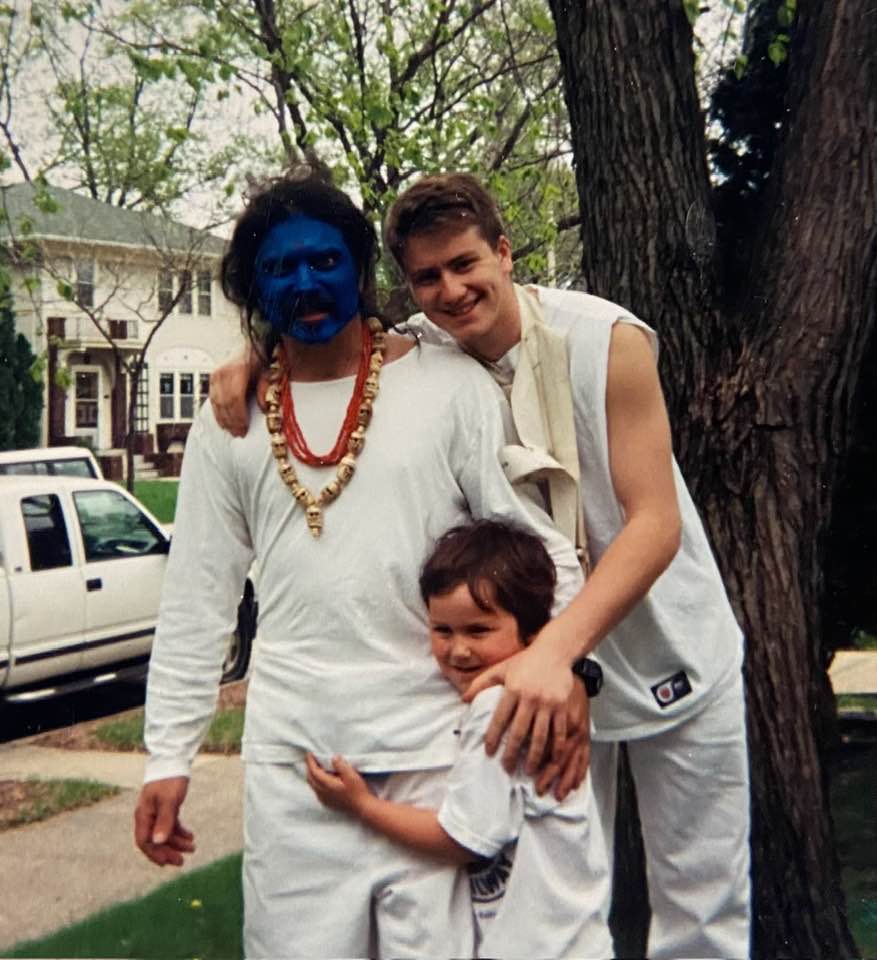Blog
The streak on the upper right is Comet Tsuchinshan-Atlas showing an impressive dust tail. The comet is a large and dirty iceberg that entered the inner Solar System and is shedding gas and dust as it is warmed by the Sun’s light. The streak on the lower left is a meteor showing an impressive evaporation trail. The meteor is a small and cold rock that entered the Earth’s atmosphere and is shedding gas and dust as it is warmed by molecular collisions. The meteor was likely once part of a comet or asteroid — perhaps later composing part of its tail. The meteor was gone in a flash and was only caught by coincidence during a series of exposures documenting the comet’s long tail. The featured image was captured just over a month ago from Sichuan Province in China.
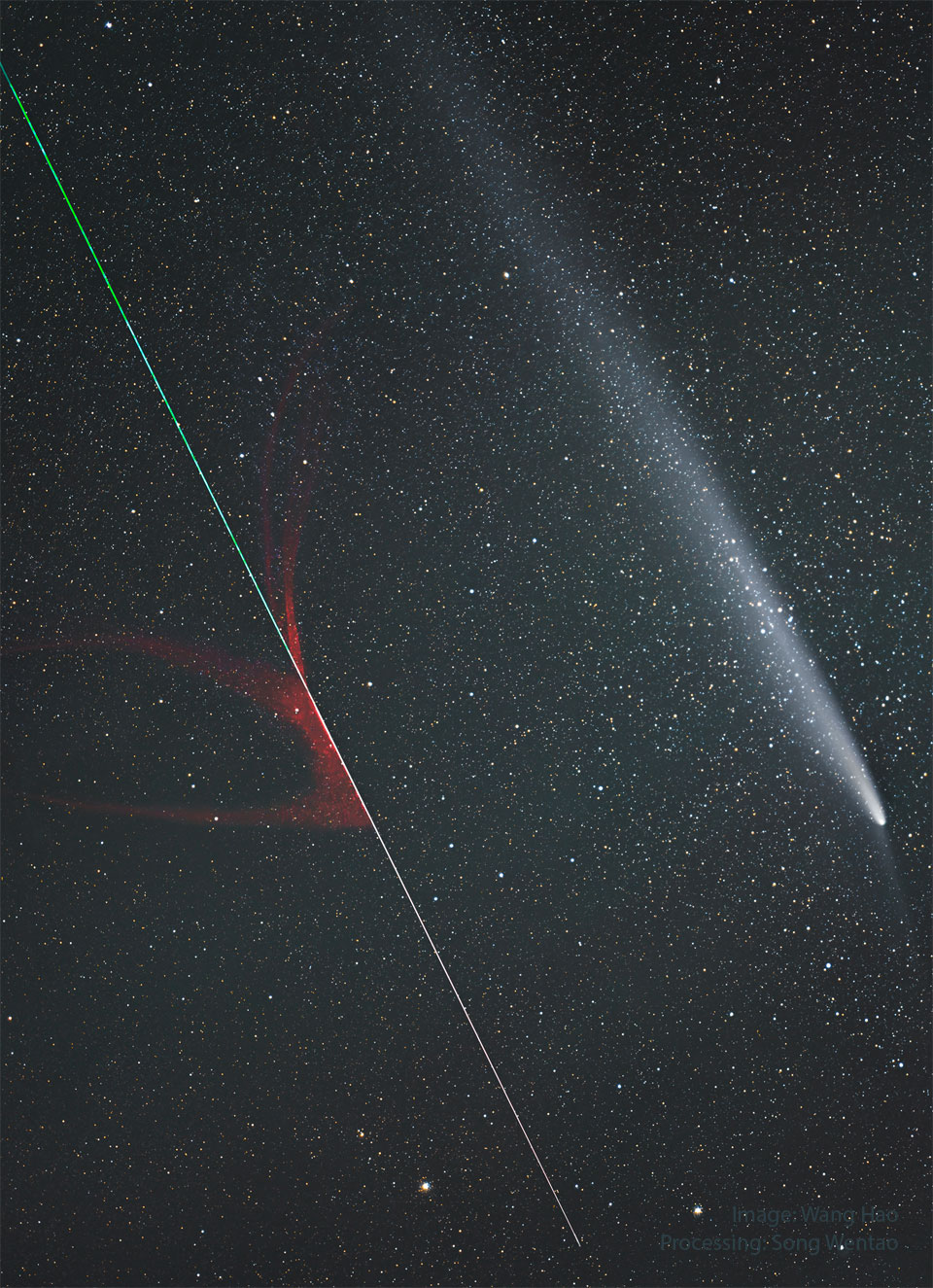
Albert J. Jackson Jr. (November 27, 1935 – October 1, 1975 Memphis, TN) was an American drummer, producer, and songwriter. He was a founding member of Booker T. & the M.G.’s, a group of session musicians who worked for Stax Records and produced their own instrumentals. Jackson was affectionately dubbed “The Human Timekeeper” for his drumming ability. He was posthumously inducted into the Memphis Music Hall of Famein 2015, and the Rock and Roll Hall of Fame as a member of Booker T. & the M.G.’s in 1992. Jackson attended the screening with Eddie Floyd and Terry Manning. After the screening, he returned home to find intruders in the house. Reportedly, he was told to get down on his knees, and was fatally shot five times in the back. Around 3 A.M. on October 1, Barbara Jackson ran out in the street, yelling for help. She told police that burglars had tied her up and shot her husband when he had returned home. Police found nothing out of place in the house, and Jackson’s wallet and jewelry were still on him.
more...Lyle David Mays (November 27, 1953 – February 10, 2020) was an American jazzpianist, composer, and member of the Pat Metheny Group. Metheny and Mays composed and arranged nearly all of the group’s music, for which Mays won eleven Grammy Awards.
Mays composed, orchestrated, and arranged as a core member of the Pat Metheny Group, playing piano, organ, synthesizers and, occasionally, trumpet, accordion, agogô bells, autoharp, toy xylophone, and electric guitar. He also composed, performed, and recorded dramatic scores for children’s audiobooks, such as East of the Sun, West of the Moon, with text narrated by Max von Sydow; Moses the Lawgiver, told by Ben Kingsley; The Lion and the Lamb, narrated by Amy Grant and Christopher Reeve; and The Tale of Mr. Jeremy Fisher and Tale of Peter Rabbit, read by Meryl Streep. In 1985, Metheny’s and Mays’s compositions were performed by the Steppenwolf Theater in Chicago in the critically acclaimed production of Orphans by Lyle Kessler. Lyle’s Oberheim analog synth pad and his voice counting the second hand of a clock at the recording session, “55…, 3..,” which can be heard from the bridge part of “As Falls Wichita, So Falls Wichita Falls (1981),” was used for Christian Dior’s Fahrenheit Cologne commercials for almost 30 years, from 1988 to 2016.
Mays was regarded by both professional musicians and music fans as one of the most innovative and creative jazz pianists and keyboardists, but he considered himself more of a serious contemporary composer with an advanced approach to classical music, harmonic aesthetics, and structural development through long forms. He composed several contemporary classical pieces, such as “Twelve Days in the Shadow of a Miracle”, a piece for harp, flute, viola, and synthesizer recorded in 1996 by the Debussy Trio. Mays also composed “Distance” for Pat Metheny Group’s Grammy-winning and RIAA-certified Gold album, Still Life (Talking)(1987, Geffen), “Mindwalk” in 2009 for marimba player Nancy Zeltsman, and previously “Somewhere in Maine” in 1988 for her duo with violinist Sharan Leventhal, Marimolin, and “Street Dreams 3” for his solo album, Street Dreams (Geffen, 1988) with top classical performers in New York City.
Mays died in Los Angeles at the age of 66 on February 10, 2020, “after a long battle with a recurring illness”.
Mays was posthumously awarded the Grammy Award for Best Instrumental Composition at the 64th Annual Grammy Awards in 2022 for his composition “Eberhard,” dedicated to the German double bassist and composer, Eberhard Weber.
more...Randal Edward Brecker (born November 27, 1945) is an American trumpeter, flugelhornist, and composer. His versatility has made him a popular studio musician who has recorded with acts in jazz, rock, and R&B.
Brecker was born on November 27, 1945, in the Philadelphia suburb of Cheltenham to a musical family. His father Bob (Bobby) was a lawyer who played jazz piano, and his mother Sylvia was a portrait artist.
Randy described his father as “a semipro jazz pianist and trumpet fanatic. In school when I was eight, they only offered trumpet or clarinet. I chose trumpet from hearing Diz, Miles, Clifford, and Chet Baker at home. My brother (Michael Brecker) didn’t want to play the same instrument as I did, so three years later he chose the clarinet!”
Randy’s father, Bob, was also a songwriter and singer who loved to listen to recordings of the great jazz trumpet players such as Miles Davis, Dizzy Gillespie and Clifford Brown. He took Randy and his younger brother Michael Brecker to see Davis, Thelonious Monk, Duke Ellington, and many other jazz icons.
Brecker attended Cheltenham High School from 1959 to 1963 and then Indiana University from 1963 to 1966 studying with Bill Adam, David Baker and Jerry Cokerand later moved to New York and performed with Clark Terry‘s Big Bad Band, the Duke Pearson and the Thad Jones/Mel Lewis Orchestra.
more...James Marshall “Jimi” Hendrix (born Johnny Allen Hendrix; November 27, 1942 – September 18, 1970) was an American guitarist, songwriter and singer. He is widely regarded as the greatest guitarist in the history of popular music and one of the most influential musicians of the 20th century. The Rock and Roll Hall of Fame describes him as “arguably the greatest instrumentalist in the history of rock music.”
Born in Seattle, Washington, Hendrix began playing guitar at age 15. In 1961, he enlisted in the US Army, but was discharged the following year. Soon afterward, he moved to Clarksville, then Nashville, Tennessee, and began playing gigs on the chitlin’ circuit, earning a place in the Isley Brothers‘ backing band and later with Little Richard, with whom he continued to work through mid-1965. He then played with Curtis Knight and the Squires before moving to England in late 1966 after bassist Chas Chandler of the Animals became his manager. Within months, Hendrix had earned three UK top ten hits with his band, the Jimi Hendrix Experience (with its rhythm section consisting of bassist Noel Redding and drummer Mitch Mitchell): “Hey Joe“, “Purple Haze“, and “The Wind Cries Mary“. He achieved fame in the US after his performance at the Monterey Pop Festival in 1967, and in 1968 his third and final studio album, Electric Ladyland, reached number one on the US Billboard 200. The double LP was Hendrix’s most commercially successful release and his only number one album. The world’s highest-paid rock musician, he headlined the Woodstock Festival in 1969 and the Isle of Wight Festival in 1970 before his accidental death in London from barbiturate-related asphyxiain September 1970.
Hendrix was inspired by American rock and roll and electric blues. He favored overdriven amplifiers with high volume and gain, and was instrumental in popularizing the previously undesirable sounds caused by guitar amplifier feedback. He was also one of the first guitarists to make extensive use of tone-altering effects units in mainstream rock, such as fuzz distortion, Octavia, wah-wah, and Uni-Vibe. He was the first musician to use stereophonic phasing effects in recordings. Holly George-Warren of Rolling Stone commented: “Hendrix pioneered the use of the instrument as an electronic sound source. Players before him had experimented with feedback and distortion, but Hendrix turned those effects and others into a controlled, fluid vocabulary every bit as personal as the blues with which he began.”
Hendrix was the recipient of several music awards during his lifetime and posthumously. In 1967, readers of Melody Maker voted him the Pop Musician of the Year and in 1968, Billboard named him the Artist of the Year and Rolling Stone declared him the Performer of the Year. Disc and Music Echo honored him with the World Top Musician of 1969 and in 1970, Guitar Player named him the Rock Guitarist of the Year. The Jimi Hendrix Experience was inducted into the Rock and Roll Hall of Fame in 1992 and the UK Music Hall of Fame in 2005. Rolling Stone has ranked the band’s three studio albums, Are You Experienced (1967), Axis: Bold as Love (1967), and Electric Ladyland (1968), in its various lists of the “500 Greatest Albums of All Time“, and it ranked Hendrix as the greatest guitarist and the sixth-greatest artist of all time.
more...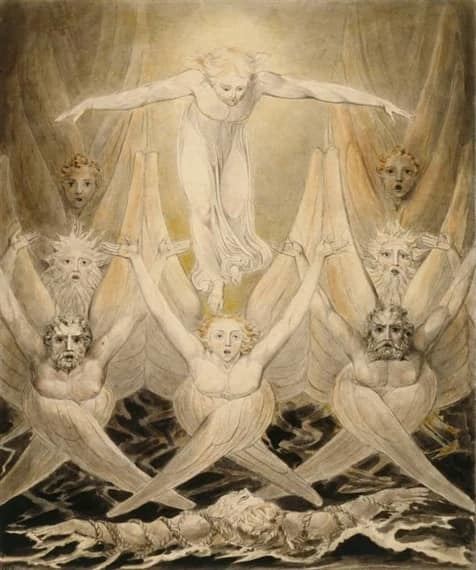
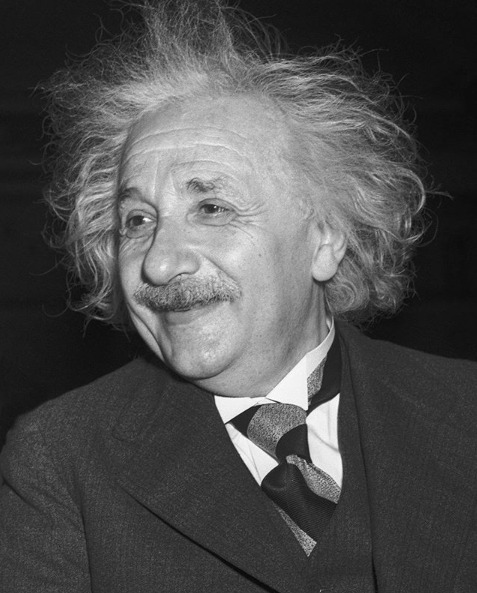
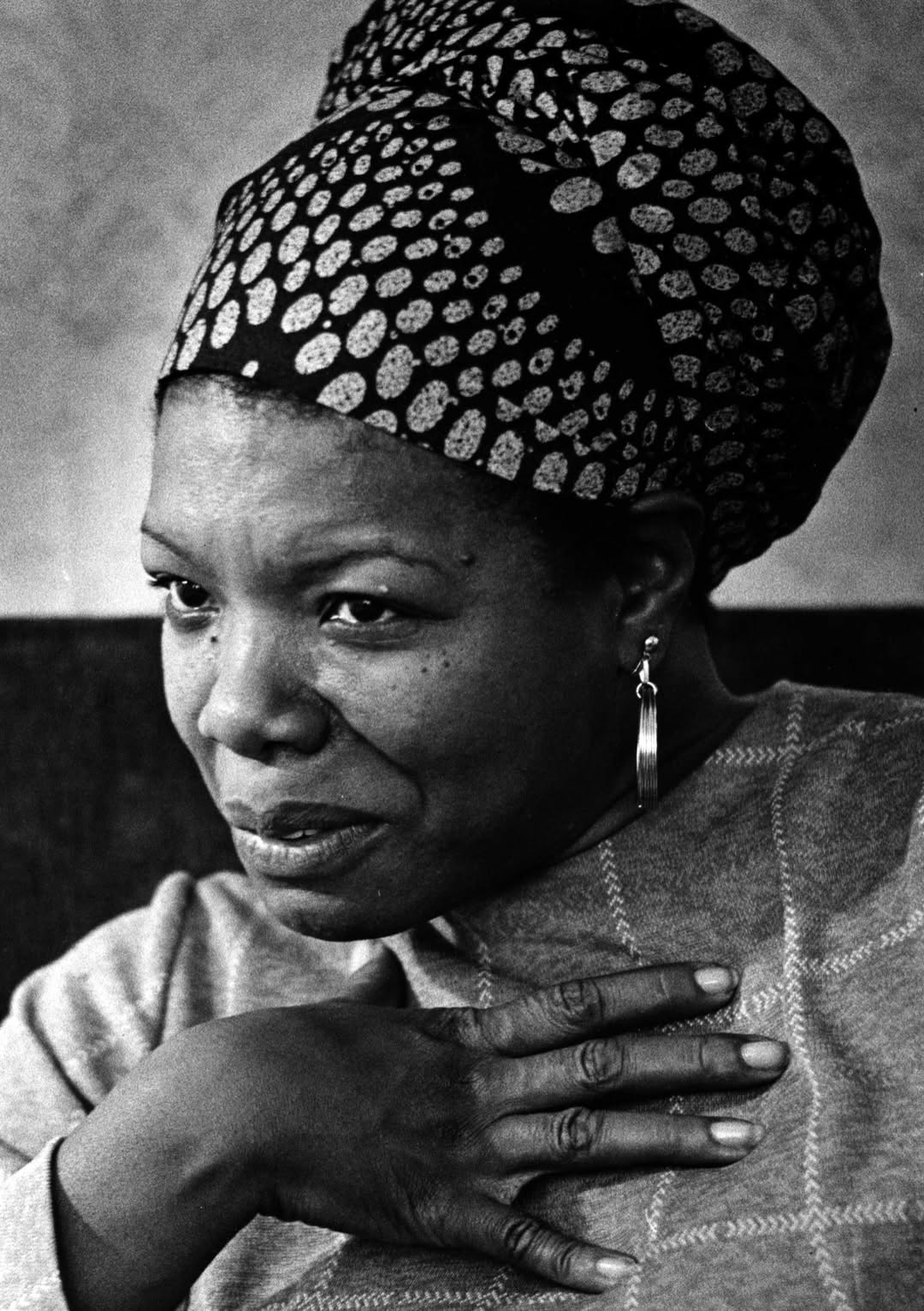
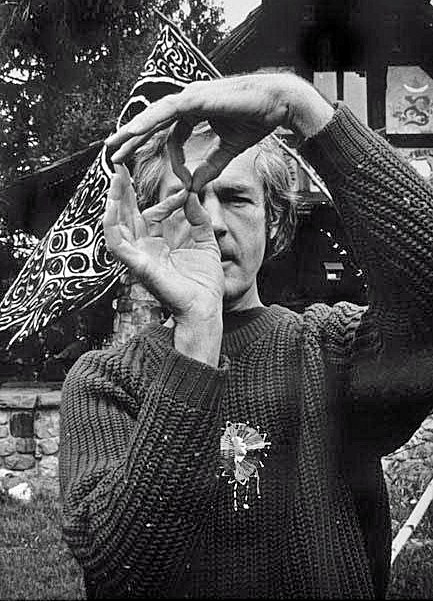
The Horsehead Nebula in Orion, is part of a large, dark, molecular cloud. Also known as Barnard 33, the unusual shape was first discovered on a photographic plate in the late 1800s. The red glow originates from hydrogen gas predominantly behind the nebula, ionized by the nearby bright star Sigma Orionis. The darkness of the Horsehead is caused mostly by thick dust, although the lower part of theHorsehead‘s neck casts a shadow to the left. Streams of gas leaving the nebula are funneled by a strong magnetic field. Bright spots in the Horsehead Nebula‘s base are young stars just in the process of forming. Light takes about 1,500 years to reach us from the Horsehead Nebula. The featured image was taken from the Chilescope Observatory in the mountains of Chile.
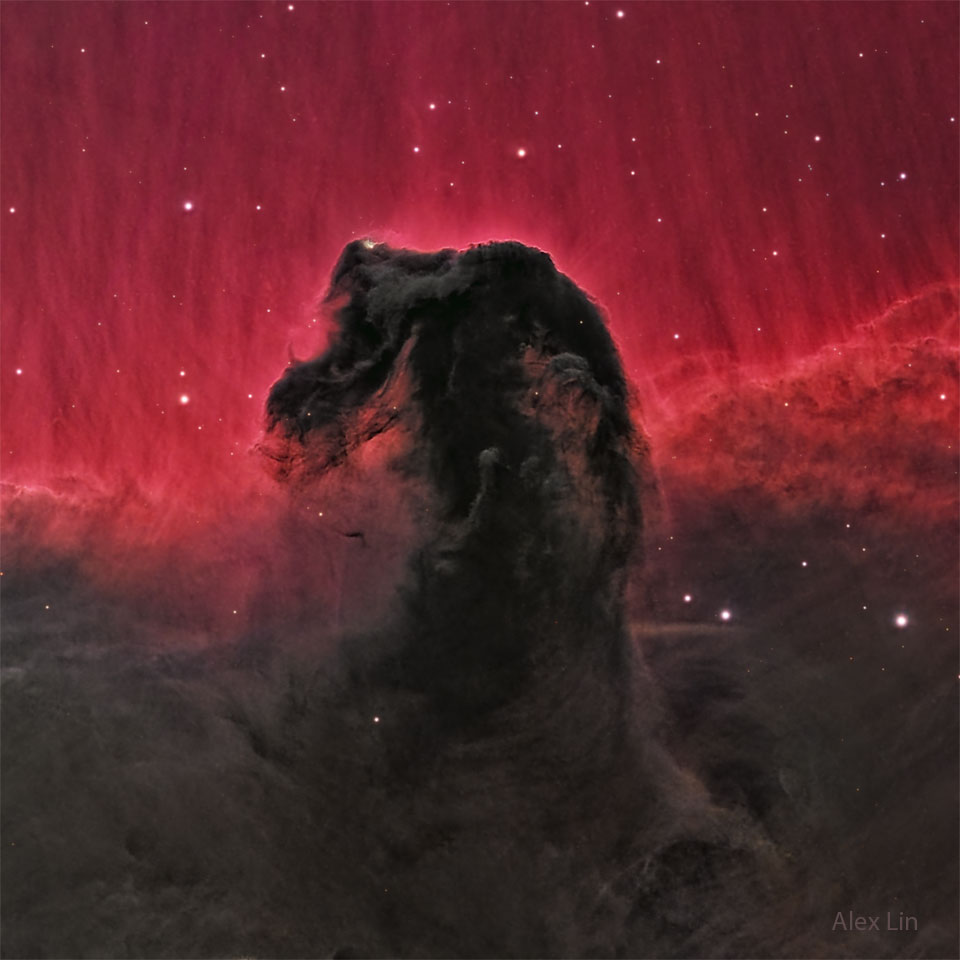
more...
John Graham McVie (born 26 November 1945) is a British bass guitarist. He is best known as a member of the rock bands John Mayall & the Bluesbreakers from 1964 to 1967 and Fleetwood Mac since 1967. His surname, combined with that of drummer Mick Fleetwood, was the source for the band’s name.
He joined Fleetwood Mac shortly after its formation by guitarist Peter Green in 1967, replacing temporary bass guitarist Bob Brunning. McVie and Fleetwood are the only two members of the group to appear on every Fleetwood Mac release, and for over fifty years have been the group’s last remaining original (or almost original in McVie’s case) members.
In 1968, McVie married blues pianist and singer Christine Perfect, who became a member of Fleetwood Mac two years later. John and Christine McVie divorced in 1976, but continued working together professionally. During this time the band recorded the album Rumours, a major artistic and commercial success that borrowed its title from the turmoil in McVie’s and other band members’ marriages and relationships.
McVie was inducted into the Rock and Roll Hall of Fame in 1998 as a member of Fleetwood Mac.
more...Tina Turner (born Anna Mae Bullock; November 26, 1939 – May 24, 2023) was a singer, songwriter, and actress. Known as the “Queen of Rock ‘n’ Roll“, she rose to prominence as the lead singer of the husband-wife duo Ike & Tina Turner before launching a successful career as a solo performer.
Turner began her musical career with her future husband Ike Turner‘s band, the Kings of Rhythm, in 1956. Under the name Little Ann, she appeared on her first record, “Boxtop“, in 1958. In 1960, she debuted as Tina Turner with the hit single “A Fool in Love“. The Ike & Tina Turner Revue became “one of the most formidable live acts in history”. The duo released hits such as “It’s Gonna Work Out Fine“, “River Deep – Mountain High“, “Proud Mary“, and “Nutbush City Limits” before disbanding in 1976.
In the 1980s, Turner launched “one of the greatest comebacks in music history”. Her 1984 multi-platinum album Private Dancer contained the hit song “What’s Love Got to Do with It“, which won the Grammy Award for Record of the Year and became her first and only number-one song on the Billboard Hot 100. Her chart success continued with “Better Be Good to Me“, “Private Dancer“, “We Don’t Need Another Hero (Thunderdome)“, “Typical Male“, “The Best“, “I Don’t Wanna Fight“, and “GoldenEye“. She embarked on the Break Every Rule World Tour (1987–1988), which became the top-grossing female tour of the 1980s and set a Guinness World Record for the then-largest paying audience in a concert (180,000). Turner also acted in the films Tommy(1975) and Mad Max Beyond Thunderdome (1985). In 1986, she published her autobiography I, Tina: My Life Story, which was adapted for the 1993 film What’s Love Got to Do with It. In 2009, Turner retired after completing her Tina!: 50th Anniversary Tour. In 2018, she was the subject of Tina, a jukebox musical.
Turner sold more than 100 million records worldwide, becoming one of the best-selling recording artists of all time. She received 12 Grammy Awards, which include eight competitive awards, a Grammy Lifetime Achievement Award and three Grammy Hall of Fame inductions. She was the first black artist and first woman to be on the cover of Rolling Stone. Rolling Stone ranked her among the 100 Greatest Artists of All Timeand the 100 Greatest Singers of All Time. Turner has a star on the Hollywood Walk of Fame and on the St. Louis Walk of Fame. She was inducted into the Rock and Roll Hall of Fame twice: with Ike Turner in 1991 and as a solo artist in 2021. She was also a 2005 recipient of the Kennedy Center Honors and the Women of the Year award.
more...Nesuhi Ertegun (Turkish spelling: Nesuhi Ertegün; November 26, 1917 – July 15, 1989) was a Turkish-American record producer and executive of Atlantic Records and WEA International. As a producer at Atlantic he worked with John Coltrane, Charles Mingus, Ornette Coleman, whom Lester Koenig had previously recorded at Contemporary, the Modern Jazz Quartet and many others. Nesuhi also became involved with the label’s rhythm & blues and rock-and-roll roster, first recruiting songwriters and producers Leiber and Stoller, with whom he had worked in California, and producing several hit records for Ray Charles, Chris Connor, the Drifters, Bobby Darin and Roberta Flack.
more...


